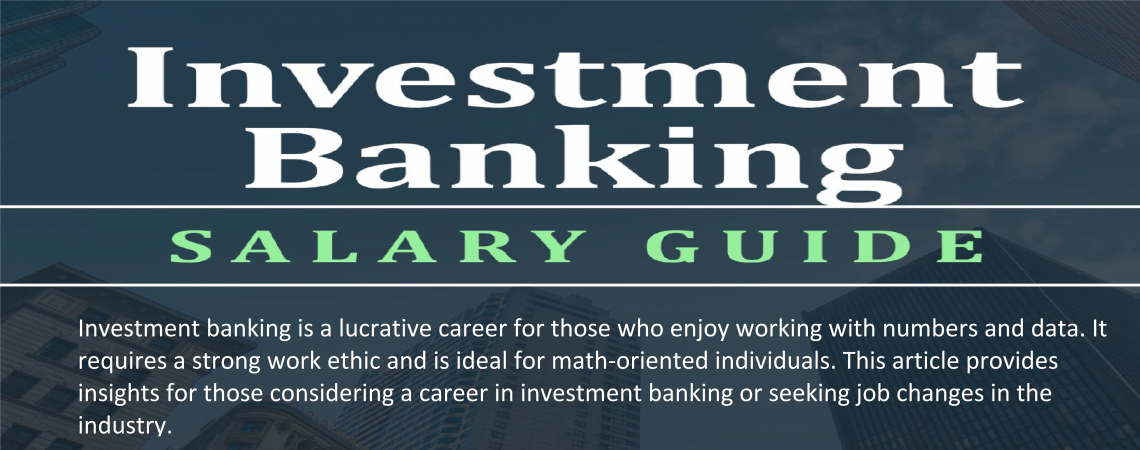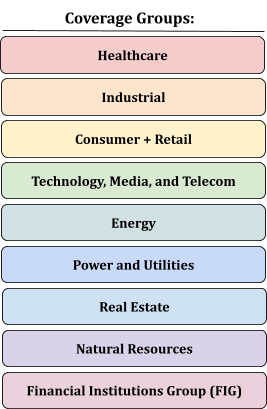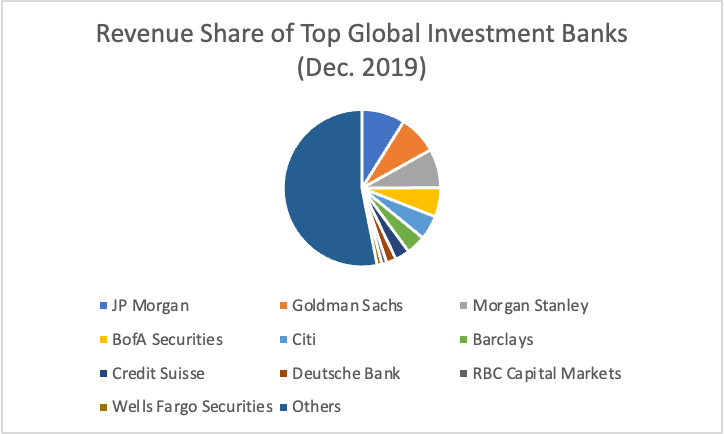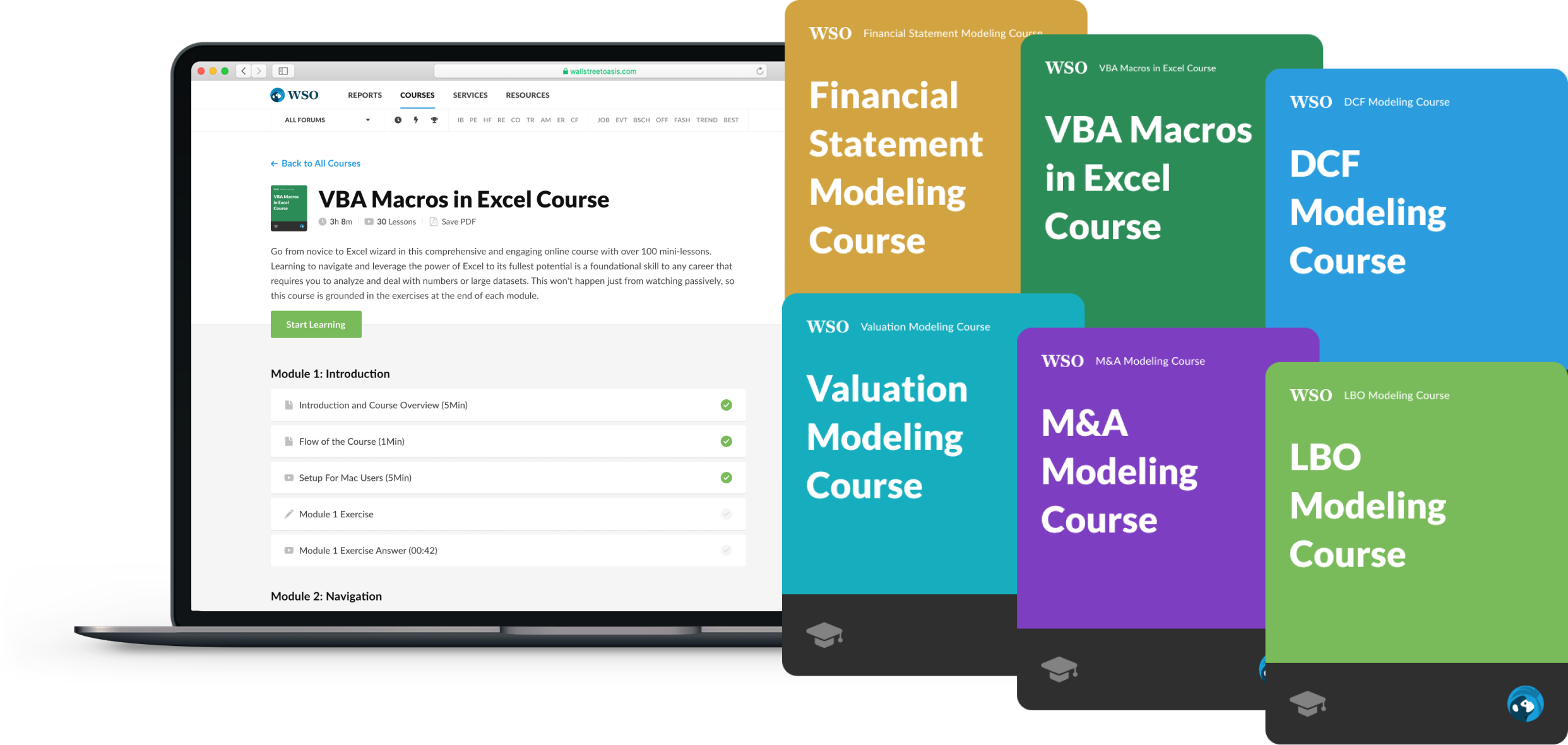
Investment Banking Salary Guide
Investment Banking Salary Guide: Provides salary information for different positions in the industry, helping individuals understand earning potential and benchmark salaries.
Investment banking is a lucrative profession. It's not just about the pay either. Investing in your career can help you build a personal brand and increase your industry knowledge. However, it comes with a steep learning curve that can be intimidating for some.

There are a lot of careers within financial services, including asset management, private equity, and sales and trading, to name a few. So how do I decide if investment banking is for me?
If you like working with lots of data or numbers, and enjoy company valuation, then this is the career for you. On the other hand, if you're very math-oriented and hard-working, you will enjoy a career in investment banking.
Pay can be a determining factor when deciding which career to pursue. However, comparing compensation from different firms can also be difficult. If you're considering investment banking as a career or thinking about changing jobs in the industry, then this article is for you.
Investment Banking and the Financial Industry
The following universal guidelines hold across all investment banks: Investment banking is a team-oriented field.

Investment bankers must keep up with the latest technology, including social media and digital marketing. The greater your experience, the more profitable your first year will be.
People in finance and traditional industries have similarities; what's important is how they approach their work. For example, successful investment bankers must be self-starters who can work well under pressure and prioritize tasks effectively.
As a banker, you're typically placed on various mergers and acquisition (M&A) deals, working with high institutional clients and highly confidential information. Thus, they must put in a lot of work and problem-solve in stressful situations to make these deals happen.
Investment bankers are typically one of the highest paid for their age. Why are they spending so much?

Banks work on very high-stakes deals, so investment professionals must be technically skilled, able to work well under stress, and hard working. In exchange for such crucial work, banks must compensate investment bankers very well.
Another viewpoint is that because the hours are so long, investment bankers make less per hour. Although analysts make around $100,000 annually, that amounts to $30-35/hour for 90-hour workweeks. That looks less impressive than $100k per year.
What to Expect in Investment Banking
A select few characteristics of an investment banking career: team-oriented, high expectations, and higher profit with more experience.
1. Investment Banking is a Team-Oriented Field
Investment banking is a team-oriented profession, and one of the most important things you can do to be successful in this field is to learn how to work with other professionals.

Having experience working with people from different backgrounds will help you develop a much broader network of colleagues who can help you succeed in your career.
In addition, you'll have the opportunity to learn from their expertise and build on your own skill set, which will make you more competitive in future job interviews.
2. Investment Banking Imposes High Expectations on its Staff
In investment banking, as in all industries, there are high expectations for success and increased demands placed on employees.
Successful investment bankers must be self-starters who can work under pressure and prioritize tasks effectively-you don't have time to slack off when everyone around you is looking for something to get done!

You also need to know how and when to delegate responsibilities, so everyone gets the work done without unnecessary interruptions or letdowns.
3. The Greater Your Experience, the More Profitable Your First Year Will Be
The longer people stay in an industry, the more they will be compensated.
Investment banking is a team-oriented field, so the first thing to consider when evaluating an investment banking job is how much responsibility you'll be given. Of course, the amount of responsibility will depend on your experience.

This suggests that sticking with investment banking for many years has great rewards: fewer hours and greater pay every time you get promoted.
Although 90-hour work weeks may sound intimidating to you now, your weeks will start to resemble the typical 40-50 hour work weeks the longer you are an investment banker.
Factors Affecting Salary
Several factors affect the salary you'll earn as an investment banker. In general, wages will be higher if your experience and education levels are greater. The amount of money you'll make also depends on where you work.

A typical starting salary for a first-year investment banker would be in the $60,000 range. However, as with any industry, there are also other factors to consider when it comes to compensation:
1. Experience
The more experience you have, the more income you'll likely make. Investment banks are typically structured in a military-like hierarchy: analyst, Associate, vice president, and managing director.
Because the risk you take on increases with each higher-up position, the compensation increases significantly.
To succeed in this career, a banker must know the industry well. However, this experiential knowledge only comes with having worked in this occupation for a substantial time.

So if you're a recent college graduate just starting in the industry, you'll likely have a smaller role and be paid less than someone with 10-15 years of experience.
However, you may take less than five years to earn what another experienced banker earns in just one year. If that's the case, going for a shorter term could pay off to boost your salary significantly.
2. Education
The higher your degree level, the better chance you have of earning a higher salary than someone who only has a high school diploma or less.

To succeed as a banker, the expectation is that you have a bachelor's degree in business or business-related fields. In addition, it's important to know foundational accounting knowledge to perform the valuation and financial modeling required on the job.
3. Location
While certain areas of the country pay well for investment bankers, others offer lower salaries due to competition from similar industries or firms like venture capital or private equity. In addition, some cities are better for jobs than others.

New York City, for example, is an expensive place for people to live and work, meaning entry-level jobs pay less than they would elsewhere in the country. But, again, this is because the living costs here are much higher than in Chicago.
4. Industry
Investment banking is one industry among many others that compete for talent; companies often use their measure of success (such as revenue growth) when deciding how much they will pay an employee.
That means that an investment banker in one company may be paid less than one at another because it is highly dependent on the firm's performance that year.
Compensation Structure
Most investment bankers are hired directly out of college and start with the 2-3 year analyst program. Most companies like to engage college students so they can get them as an employee when they are young, increasing their likelihood of staying with the company.

Their salary is comprised of two different parts:
1. Base
This is the standard portion of their salary. In 2022, the base wage increased to $110-125k (initially at $85-95k) for a large bulge bracket bank.
2. Bonus
This year-end compensation is typical for analysts and semi-dependent on their performance. An average bonus size ranges from $50,000 to $ 80,000, while top performers earn around $100,000.
In January of this year, many banks increased their pay so that 1st-year analysts would earn a base of $110k, and 2nd years would earn $125k.
As a result of these higher bonuses for analysts and associates, banks have opted to decrease bonus sizes slightly over 2022. During the past 1-2 years, the average percentage increase for analysts has been around 20-25%.
But what are the factors that determine the size of the bonus?
Investment Banking Bonus Size Factors
Three major factors determine the size of an investment banker's bonus.
- Firm Type - Whether the bank is Bulge Bracket, Middle Market, or Elite Boutique
- Team Performance - How did the product/coverage group perform over the past year
- Bank Performance - Total Revenue and Overall Deal Count

Although the type of bank, team performance, and overall firm performance play a role in a banker's bonus size, the ultimate factor is their performance.
The top performers usually get 100% of their base as an incentive bonus, while the lowest-performing analysts will get around 60-70% of their base pay. Therefore, it's important to be placed within the top or middle-performing sector if you seek promotion and stay with the company.
If you're placed within the lowest-performing group, you may need to up your performance if you want a promotion soon. Thus, an analyst's performance is the most important factor influencing their career advancements at the firm.
Firm Type
There are three main types of investment banks. Bulge bracket banks work on multi-billion dollar deals and have other product groups like sales and trading, commercial banking services, and asset management (for a select few).

The second type is the elite boutiques, which work on equally large deals, but focus solely on M&A advisory services (e.g., Evercore, Lazard, and Guggenheim).
Lastly, others are classified as middle market banks, which tend to work on smaller deals worth around $500 million and offer M&A advisory, debt, and equity services.
Let's discuss the differences in compensation at each of these types of firms:
- Bulge Bracket (BB) The base compensation tends to be the same as boutique banks, with bonuses varying based on the above factors. Some examples of BB banks include Goldman Sachs, JP Morgan, Morgan Stanley, Deutsche Bank, etc.
- Elite Boutique Base compensation is around 100k for analysts, with some boutiques raising their payments further. For example, Centerview Partners went up to pay $130k for first-year analysts.
They pay a larger base because they utilize a greater percentage of the deal fees to pay their employees. The bonuses tend to be the same as BB Banks. Some examples of elite boutiques include Evercore, Lazard, PJT, and Moelis & Co.
- Middle Market These firms tend to pay a little lower but remain within the competitive range to recruit college graduates. To balance out this slight reduction in pay, middle-market firms offer their employees better hours and work-life balance.
Some examples include RBC Capital markets, Jefferies, Macquarie, and KeyBanc.
Team Performance
Investment banks organize their groups into coverage, which refers to specific industries.

This is a typical list of coverage groups; however, each investment bank may have its unique list of coverage groups. As an investment banker, you work closely with your group members on various deals.
When determining which group is best for you, think about the types of companies you like working with and which industry they fall into. For example, if you like following retail companies' financial trends, then the consumer and retail coverage group may be best for you.
Each coverage group competes with other firms on how many deals get closed in each industry within the year. So, for example, if an analyst within the Telecom group manages to close many deals, thereby bringing in a lot of revenue to the bank, the bonus size for that group will be larger than for other coverage groups.
Bank Performance
Every year-end, investment banks set aside a specific percentage of revenue earned for employee bonuses. The better the firm does, the larger the bonus pool will be. However, if a firm didn't close a lot of deals that year, they have to decide to cut bonuses.

Above is a diagram of the top investment banks worldwide and their market share in the global investment banking industry. The data is taken from Mordor Intelligence, which provides market research information in consulting and banking.
As one can see, it's a very diversified industry with no single bank monopoly. This suggests that there are a lot of banks with successful analyst programs that are all within the same realm of competitiveness.
Moreover, this graph only includes the bulge and a few middle market banks, as the elite boutiques are not publicly traded. Thus, their financial information is private.
2023 Projected Bonus Size Based on Industry
Johnson Associates, a compensation analysis company, predicts a year-end bonus decrease. M&A deals have slowed because of a weak market and unsteady economic outlook, along with drastic declines in equity capital markets.

This incentive decrease is likely to continue into 2023, and inflation will put a huge damper on the actual value of the bonuses.
Because banks are cutting down on hiring new workers after the 2021 boom, headcounts are lowering within financial services.
However, retaining top talent has grown difficult, as people have the same 2021 market-level expectations. Thus, many banks are raising the base salary by 5% to keep this talent.
Plus, with the new trend of analysts leaving investment banks for private equity, banks must try to retain their talent. Thus, they must attract employees through higher pay, lower working hours, or other added perks.
Investment Banking Career Hierarchy
After completing the analyst program, most employees opt for private equity because of the slightly better work-life balance for similar pay.

As most investment banks struggle to retain employees after the analyst stage, they seek to add incentives by increasing pay and decreasing the hours slightly.
- Associate An Associate at a bank is a role typically achieved after two years of experience. They handle financial modeling, data analysis, and client engagement, assisting in the preparation of pitch books and attending client meetings. Associates typically earn around $250,000+ in compensation.
- Vice PresidentThe next step after Associate is Vice President, whose two main focuses are maintaining client relationships and preparing pitch books.
One must have the necessary social skills and analytical expertise to succeed in this role. This is why it can be difficult to transition from a technical-focused associate role to VP. In addition, the compensation for VPs can make upwards of $500k.
- Managing Director
This is the highest role at investment banks. They are responsible for the day-to-day operations of their product/coverage groups and report directly to C-Suite executives.
Would you like to succeed as an investment banker?
Along with this guide, WSO has the Elite Modeling Package, which will help you immensely get an investment banking job. This package includes six informative modules: Excel, M&A, LBO, Financial Statement, DCF, and Valuation modeling courses with 100+ videos each.

Everything You Need To Master Financial Modeling
To Help You Thrive in the Most Prestigious Jobs on Wall Street.
Researched and authored by Sneha Srikanth | LinkedIn
Reviewed and Edited by Raghav Dharmarajan
Free Resources
To continue learning and advancing your career, check out these additional helpful WSO resources:
.jpg?itok=DxumzaOP)

or Want to Sign up with your social account?